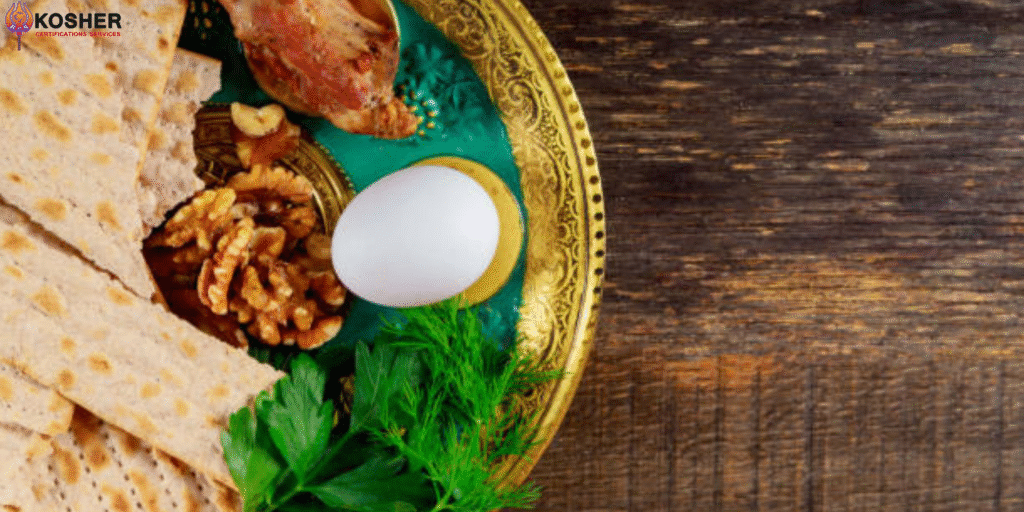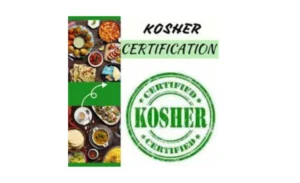Why Kosher Certification Matters: A Guide to Certificate

Kosher Certification
As consumers become more conscious about what they eat, food labels and certifications are gaining more attention. Among them, Kosher Certification stands out—not just for religious reasons, but also for its high standards of food quality, cleanliness, and safety. If you’ve seen kosher symbols on packaging or heard about a kosher , you may be wondering what it all means. This blog breaks down the basics of kosher, how it works, and why it’s important for both buyers and businesses.
What Is Kosher Certification?
The word “kosher” comes from Hebrew and means “fit” or “proper.” It refers to food that meets Jewish dietary laws, also known as kashrut. These laws are detailed in the Torah and explain which foods are allowed and how they must be prepared and consumed.
For example:
-
Only animals that chew their cud and have split hooves are kosher (like cows and sheep). Pigs and rabbits are not.
-
Fish must have fins and scales to be kosher, which excludes shellfish like shrimp or crab.
-
Meat and dairy cannot be cooked or eaten together.
-
All food must be prepared with clean utensils and equipment that haven’t come into contact with non-kosher items.
For a product to be officially recognized as kosher, it must go through a strict approval process called kosher certificate.
What Is Kosher Certificate?
Kosher Certification is a detailed inspection process carried out by a recognized kosher authority. It verifies that a food product, ingredient, or production facility follows all Jewish dietary laws.
Once a company passes this inspection, the certification body issues a kosher certificate. This document confirms that the item or facility meets kosher requirements and can carry a kosher symbol (such as OU, OK, or Star-K) on its packaging.
For consumers, that symbol provides reassurance. It means the product has been inspected, approved, and meets very specific food preparation standards.
Why Is a Kosher Certificate Important?
A kosher certificate benefits more than just religious communities. Many people—regardless of faith—choose kosher products because they trust the process behind them. Here’s why kosher certificate matters:
-
Religious Observance: For Jewish families, it’s a must. They rely on the certification to know what they can safely eat.
-
High Standards: The kosher process demands clean equipment, precise handling, and traceable ingredients—often exceeding general food safety standards.
-
Health and Lifestyle Choices: Some people with allergies or dietary preferences choose kosher products because of the detailed labeling and inspection process.
-
International Trade: Many global buyers and retailers require kosher-certified goods. Having a kosher certificate can open up new markets for food manufacturers.
How Does a Business Get Kosher Certified?
Getting Kosher Certification involves several steps, all supervised by trained experts. Here’s how it works:
-
Application: A company applies to a kosher agency and submits product details, ingredients, and facility information.
-
On-Site Inspection: A rabbi or kosher inspector visits the site to examine the ingredients, equipment, and processes.
-
Ingredient Verification: Each ingredient must either be inherently kosher or come from a kosher-approved source.
-
Approval and Certificate: If everything checks out, the agency issues a kosher and allows the company to use its kosher symbol.
-
Ongoing Monitoring: Certification is not permanent. Regular follow-up inspections ensure the business continues to meet kosher standards.
Who Issues Kosher Certificate?
Several reputable agencies around the world provide kosher certificates. Each has its own symbol that consumers look for. Some of the leading agencies include:
-
OU (Orthodox Union)
-
OK Kosher
-
Kof-K
-
Star-K
-
EarthKosher
All these agencies follow similar kosher laws but may differ slightly in their processes and supervision levels. No matter the symbol, a valid kosher ensures that the product has passed rigorous checks.
Business Benefits of Kosher Certificate
For food manufacturers, retailers, and hospitality providers, Kosher Certification is more than a religious label—it’s a business opportunity.
-
Access to Wider Markets: A kosher certificate can attract Jewish consumers, vegetarians, vegans, Muslims, and health-conscious shoppers.
-
Boost in Brand Image: A kosher-certified label signals that your product has passed strict quality and safety checks.
-
Better Export Potential: Many countries require or prefer kosher-certified imports.
-
Increased Customer Trust: Certification builds consumer confidence and loyalty.
Conclusion
Kosher certification represents a powerful blend of tradition, trust, and quality. Whether you’re a consumer looking for clean and responsibly made products, or a business seeking to expand your market, understanding and obtaining a kosher certificate can make a significant difference.
As food standards become more important to buyers worldwide, kosher stands as a reliable sign that a product is not only permissible but also carefully prepared. In short, kosher means more than tradition—it means trust.

